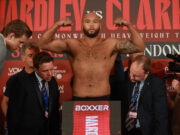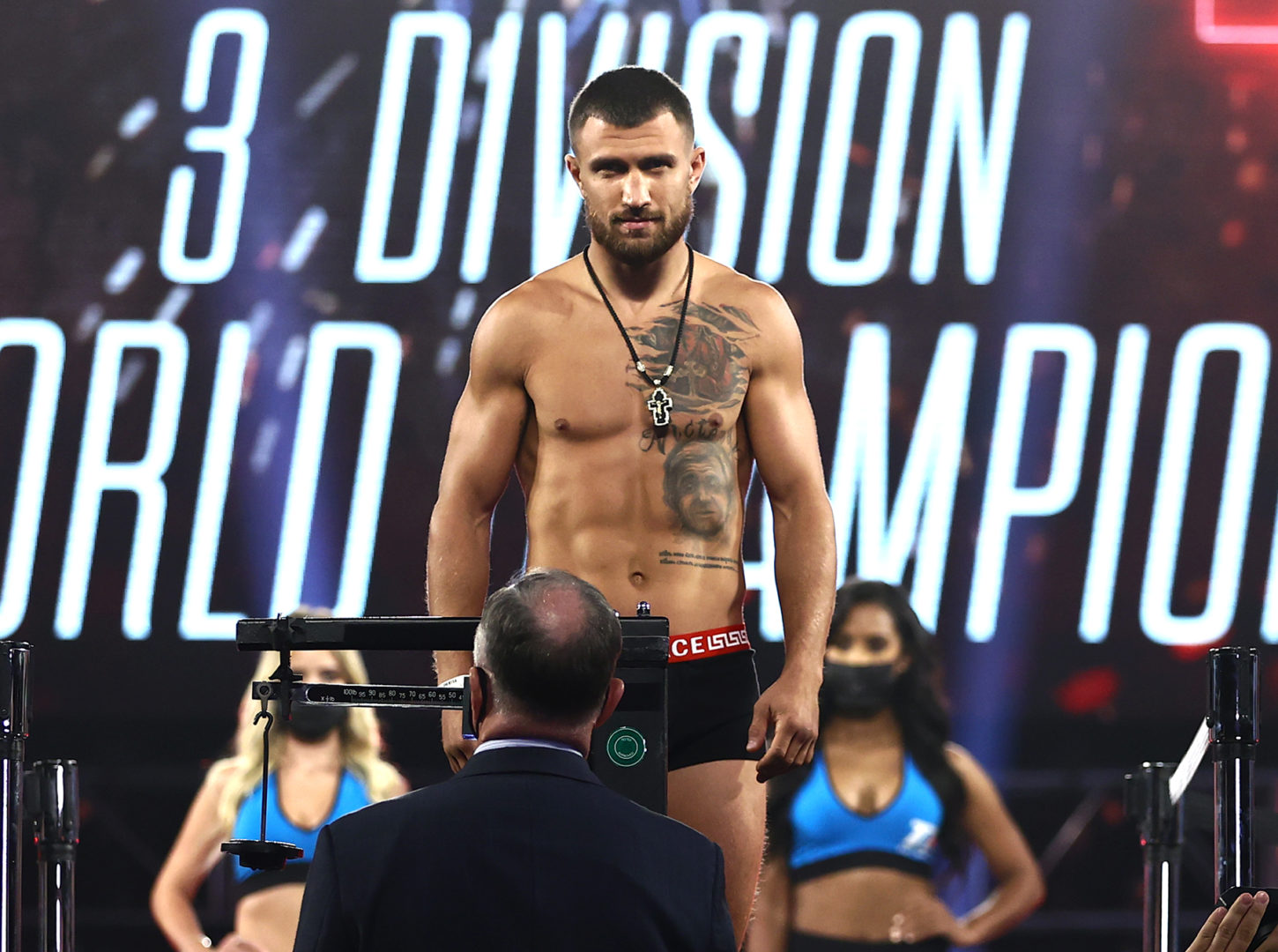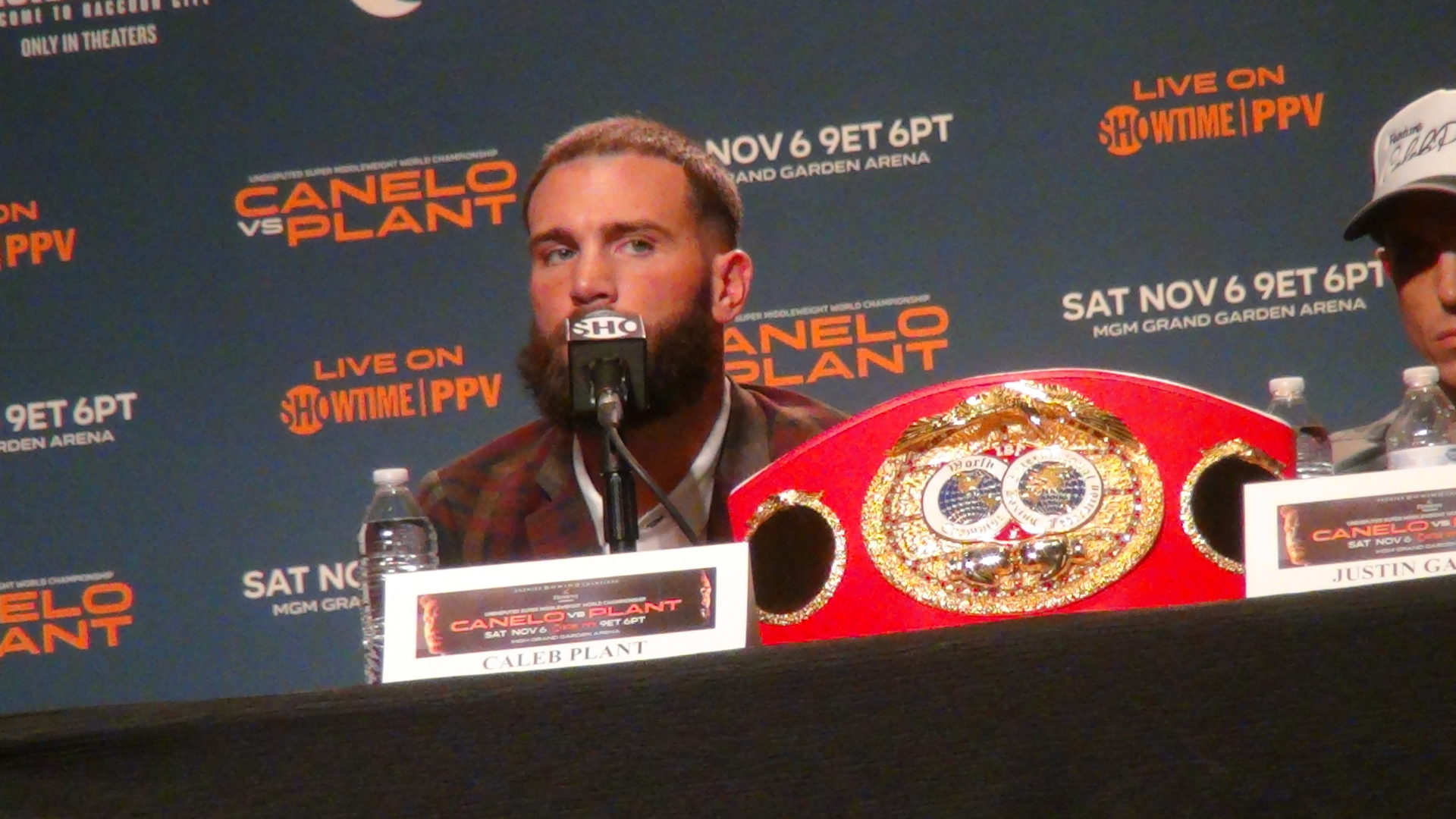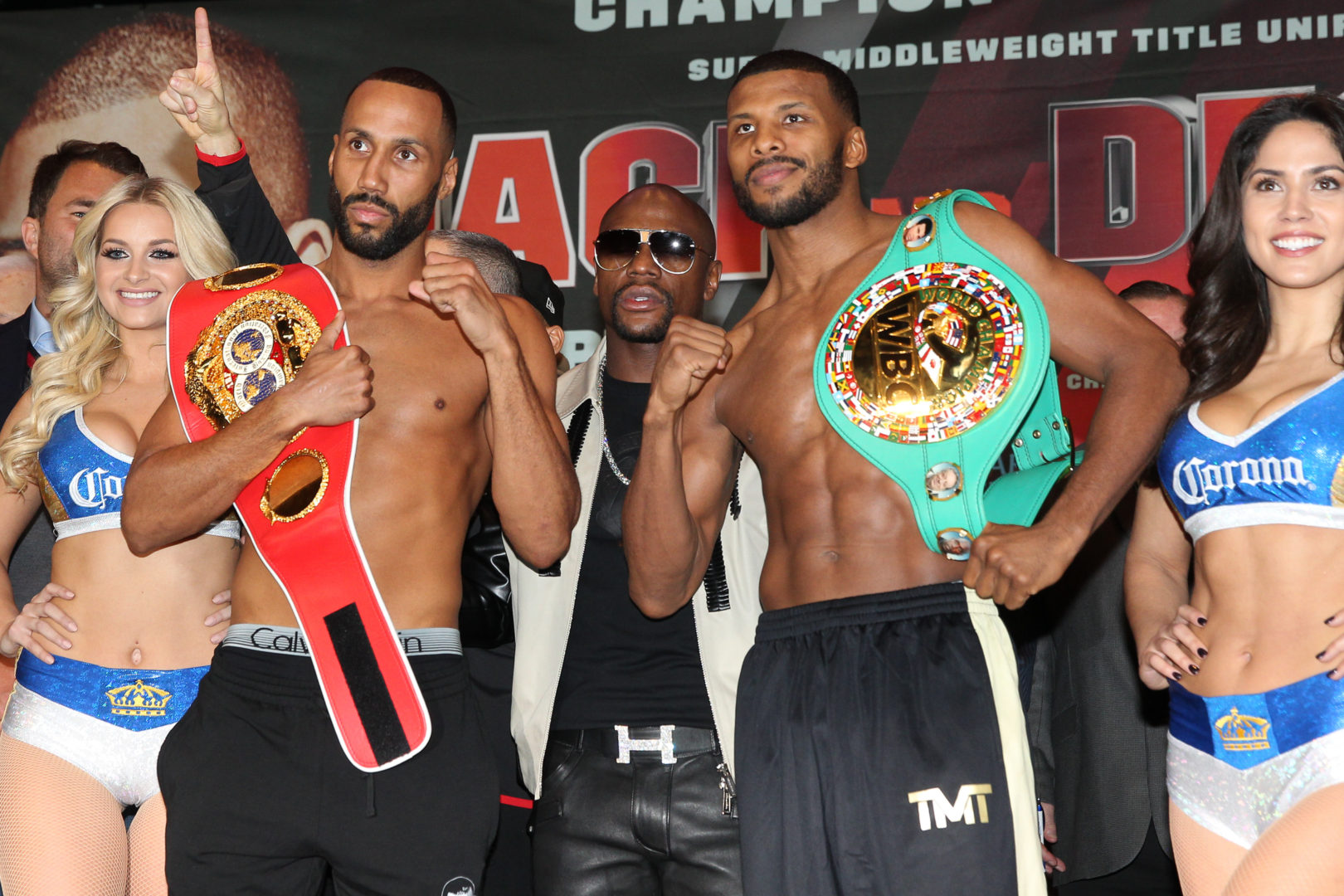By Jimmy Tobin-

It was easy to look past the character being interviewed; rare are the moments when much of interest ever issues from that mouth; easier still to ignore the antagonist conducting the interview, wholly unfit as he is to speak to men almost invariably his better. Behind this charade stood the fighter, silent, sullen, like a child toeing the ground in earshot of a conversation about him that he is not allowed to participate in. When finally allowed to speak, like so many of his fraternity he offered a cliché, but one that because of its veracity boasted some charm.
“I’ll fight anyone.”
Saturday night, at Barclays Center in Brooklyn, Badou Jack did not fight just anyone. For the fourth fight in a row, Jack fought a man capable of beating him, and not in the empty sense that says anything can happen in a prizefight—those who follow boxing understand how often matchmaking pares the potential for the unexpected down to mere theory, empty promise, tease. His opponent, James DeGale, a former Olympic gold medalist and fellow owner of a super middleweight trinket, fought Jack on mostly even terms leading to mostly even scores of 114-112 for DeGale, and 113-113 twice.
This was the second consecutive draw for Jack, who was unable to turn back a chemically enhanced Lucian Bute last April. But these draws, however bitter, are not the past Jack need bury. No, that past was etched into his ledger in 2014, when a then-undefeated Jack was splayed in the first round by a right hand from Derek Edwards. For many, it was a moment of a delicious schadenfreude: a member of Floyd Mayweather’s Money Team humiliated in a nationally televised showcase. Jack, yet too irrelevant to warrant such animosity, was vilified, his unmaking celebrated, by people who had desired a Mayweather failure for so long they were willing to accept a vicarious one.
If any of that ill will persists, Jack is undeserving of it. He is not his promoter, he is not his advisor, and he is not typical in the derogatory sense anyone who has grown frustrated with boxing understands. “The Ripper” rehabilitated himself by beating fighters who did not simply assuage his pride but actually confirmed his merit. He did not, like too many fighters of privilege earned or otherwise, secure victories primarily through matchmaking, but by steeling himself against greater challenges and answering the call of the moment.
Jack imperiled himself again against DeGale, the fighter of greater pedigree, the southpaw with a handful of tricks and some understanding—though not a mastery—of how to employ them. Degale dropped Jack in the first round with a lead left hand; and that auspicious start carried over through the early rounds while Jack parsed the frivolities of DeGale’s style, the empty threats in his movement, in all the hitting and not hitting and moving. Over the second half of the fight, however, when it became just that, Jack revealed who he has become since a lazy jab against Edwards cost him his daylights. Jack left DeGale looking like a man jumped into a gang. He rocketed DeGale’s mouthguard, and even a tooth, out of his mouth, setting up this facial reconstruction with a committed body attack. In the twelfth, punctuating the swing of control, Jack dropped Degale with an uppercut.
This second half surge (attributable in part to DeGale’s limitations and to the quality of the matchup), was improbable considering Jack’s struggle with the scale. Typically, a weight-drained fighter’s performance resembles a tractor pull: an explosive start is followed by a quick and steady exhaustion before the finish line. That Jack was able to improve as the fight wore on bodes well for his prospects at light heavyweight, where he is headed despite the appeal of a rematch with DeGale.
Could he make 168 pounds again, most everyone would expect him to pursue his satisfaction against DeGale. Certainly, the weight is the defining factor in his leaving a Degale rematch on the table. But there is also a sense that Jack is willing to leave another bitter moment in the past because he knows greater challenges await. No one will hold a draw with DeGale against him, nor should they, since perhaps the most pronounced takeaway from those twelve rounds (and many that preceded them) is that regardless of the outcome Jack guarantees action, and the moments that birth and sustain that reputation very often outshine the results.
Like all volume fighters, Jack will have to be mindful of the power that awaits him at light heavyweight: the element of attrition in his style he will always tempt disaster against opponents who need but one clean look. Nor can you, whatever your promotional or network allegiance, ascend to the top of that division without sharing the ring with a fighter known primarily for relieving men of their senses. But Jack, the fighter who professes a willingness to fight anybody and has the daring to make good on his words, has earned the right to worry about his future. His past—or at least the moment in it that once defined him—should hound him no longer.






















